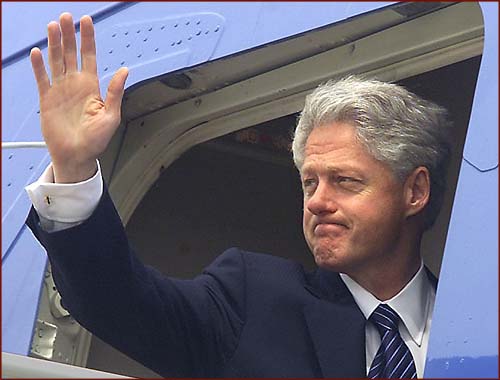“The Comeback Kid.” Such was President Bill Clinton’s self-branded title following the 1992 New Hampshire presidential primary. It was a fitting nickname, and an especially meaningful one from a swing state like New Hampshire. Bogged down at the time by allegations of affairs, a letter where Clinton thanked a military officer “for saving me from the draft,” and Mrs. Clinton’s comment that she should not “stay home and bake cookies” during the campaign, Clinton’s prospects seemed to be quickly dimming. Somehow, though, the Granite State still endorsed the then-Arkansas governor. How Clinton was able to be successful then and later amid the other scandals that would emerge throughout his presidency, are a lesson in how to win in American politics.
The reasons for this are a topic for a much longer post, but for a preview there are two main parts to explaining why. The first is the political context at the time. Clinton, a pro-choice Democrat, was a progressive voice in a Washington that had lacked one in the White House for almost 12 years. Liberals were eager for someone who supported their views to finally be on the national stage. Despite Clinton’s obvious drawbacks, many on the left were able to swallow his personal indiscretions to see their ideals represented in the executive branch. Had Presidents Reagan or Bush been Democrats instead of Republicans, perhaps voters would not have been so ready to stay with Clinton. If Bush’s approval ratings were not so high during the primary season, maybe more high-profile candidates (think former-Gov. Mario Cuomo of New York or then-Senator Al Gore) would have sought to defeat the incumbent. This political equilibrium was the perfect opening for the relatively obscure Arkansas governor to emerge from. The lack of strong Democratic opposition and the left’s acute desire to win the White House after three terms of Republican presidents gave Clinton the support he needed to overcome his personal handicaps. The shrinking economy during the general election campaign then assured his victory in November.
Aside from these political calculi, Clinton had tenacity like no other. Renown for his ability to work the rope line with an effervescent smile, formulate complex policy, or gracefully deliver one of his trademark speeches after routine 20-hour days, campaign advisers dubbed him the “thoroughbred.” While in many ways Clinton was victorious because of the circumstances of the time, much of his success stems from his personal charm, wit, and intellect. Much more innocuous scandals have brought down many other senior politicians. Although they have not been as powerful as President Clinton, they rarely are able to stay in office or have any political influence if they do. After that New Hampshire primary, Clinton was in Dover to give his victory speech. He said, “I’ll tell you what the real character issue is, who really cares about you.” The country believed him – for two terms.

I’m continually amazed at Clinton’s legacy. I found myself watching the PBS American Story special on the Clinton Administration, and it was pretty fascinating. This guy was a scandal monkey, and the only thing more remarkable than the number of scandals is how pristine his legacy has remained in the post-Presidency. In that sense, it’s a lot like Reagan: do a good job on the economy, and people will forgive just about everything else.
But it’s also a stunning reminder of just how scandal-free the Obama Administration has been. Many writers smarter than I have commented on this as well. Obama is so squeaky clean (comparatively) that his Republican opposition has had to synthesize scandals in order to fill the void (Benghazi, gun-running, Sestak appointment “scandal”. The list is pretty thin…).